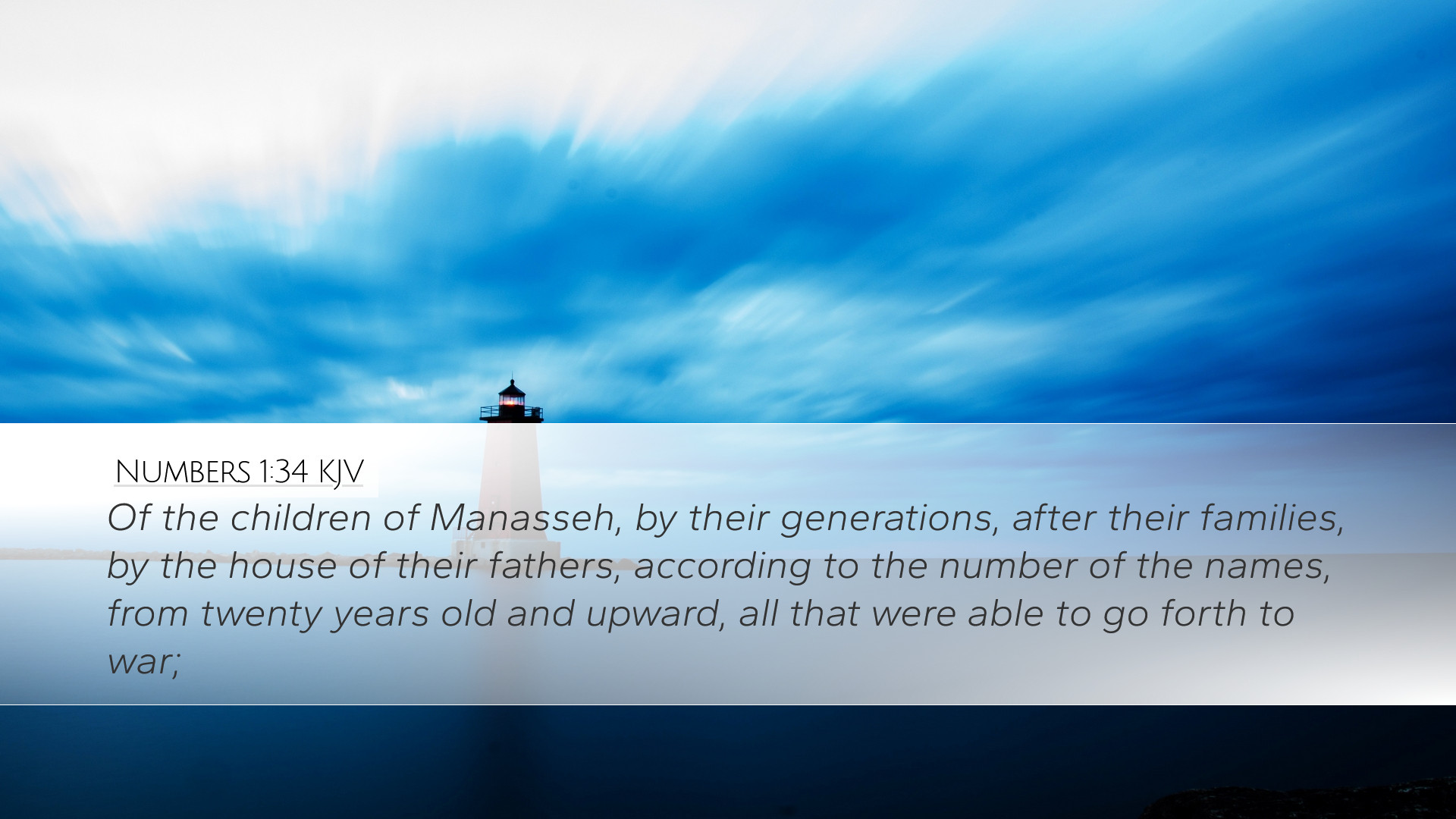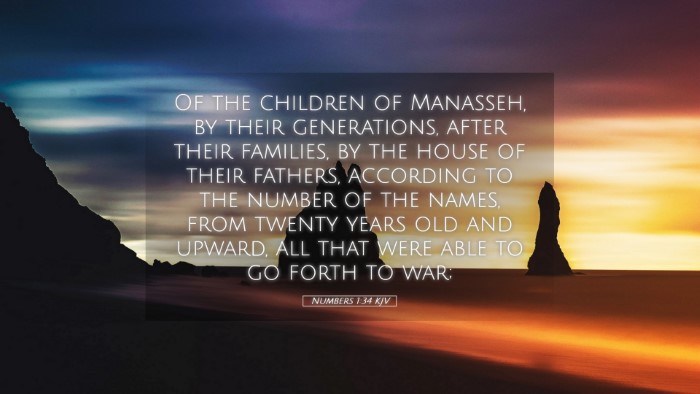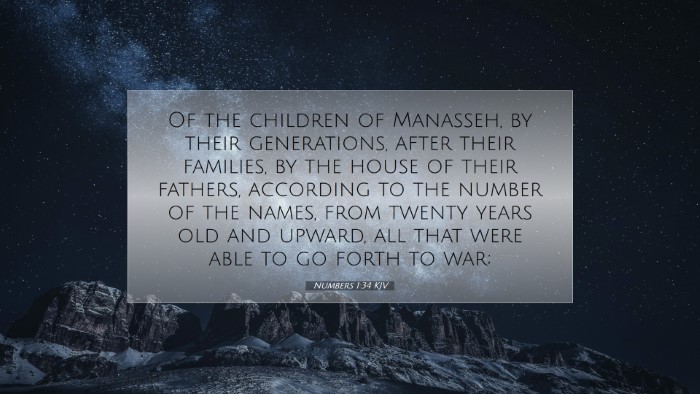Commentary on Numbers 1:34
Text of the Verse: "And of the children of Ephraim, by their generations, after their families, by the house of their fathers, according to the number of the names, from twenty years old and upward, all that were able to go forth to war."
Introduction
This verse is a part of a larger narrative in the Book of Numbers, often referred to as the “census of Israel.” It underscores the importance of organization and structure within the community of Israel, especially as they prepared for the challenges ahead in the wilderness. This commentary combines insights from public domain sources like Matthew Henry, Albert Barnes, and Adam Clarke to explore its theological and practical implications.
Contextual Background
In the Book of Numbers, God commands Moses to take a census of the Israelites. The significance of this census is twofold: it serves as a military enrollment and underscores God’s provision and organization for His people. The mention of Ephraim, one of the key tribes of Israel, highlights the tribal divisions that comprised the nation and their respective roles.
The Significance of Ephraim
Ephraim was notably significant among the tribes of Israel. It was the second son of Joseph, representing a large and influential portion of the Israelites. According to Clarke, Ephraim had been blessed with substantial resources and was prominent in military campaigns. Therefore, enumerating them was essential for understanding the strength and capability of Israel as they faced incoming challenges.
Theological Implications
This verse prompts several theological reflections that are relevant for contemporary applications.
- God’s Sovereignty in Enumeration: The act of counting demonstrates God’s sovereignty. As Matthew Henry notes, God oversees every aspect of His people, showing particular concern for their well-being and readiness.
- Covenantal Identity: The census reveals the identity of the Israelites as a covenant community. Each name listed indicates the individual’s part in the larger plan of God, reminding us that God knows each of His people personally—an echo prevalent in the New Testament where believers are regarded as the “chosen people.”
- Preparation for Service: The specific mention of those “twenty years old and upward” conveys a call to maturity and accountability. Barnes emphasizes that the requirements for military service illustrate the transition from youth to responsibility in believing communities.
Practical Applications
For pastors, students, theologians, and scholars, Numbers 1:34 provides practical insights into leadership, preparation, and an understanding of community.
Leadership and Organization
As followers of Christ, leaders are called to organize and guide communities effectively. Just as Moses was tasked with counting and assessing the readiness of the Israelites, leaders today must evaluate the gifts and readiness of their congregations to serve effectively in mission work.
- Intentional Discipleship: Emphasizing the importance of discipleship, congregations should continually assess the readiness of their members, preparing them for service both in the church and the community.
- Value of Every Individual: Each name in the census reflects the importance of each person within the body of Christ. This emphasizes the need for inclusion and recognition of all members within the fellowship.
Spiritual Readiness
Just as those counted were able to go forth to war, believers must also prepare spiritually for the battles they face in their lives.
- Equipping for Spiritual Warfare: It is essential for Christians to be equipped with the Word of God and prayer, engaging in personal and communal spiritual preparedness.
- Maturity in Faith: The reference to age highlights the importance of spiritual maturity. Pastors are encouraged to foster environments where growth is prioritized, enabling believers to mature in understanding and in action.
Conclusion
Numbers 1:34 offers profound insights into the character of God, the identity of His people, and the importance of preparedness for service. By drawing from historical context and the interpretations nourished by public domain commentaries, it serves as a reminder that every individual plays a significant role in the Kingdom of God. As the church moves forward, understanding our identity as God's chosen people will empower believers to engage in their calling with confidence and clarity.
References: Insights derived from Matthew Henry, Albert Barnes, and Adam Clarke's public domain commentaries.


